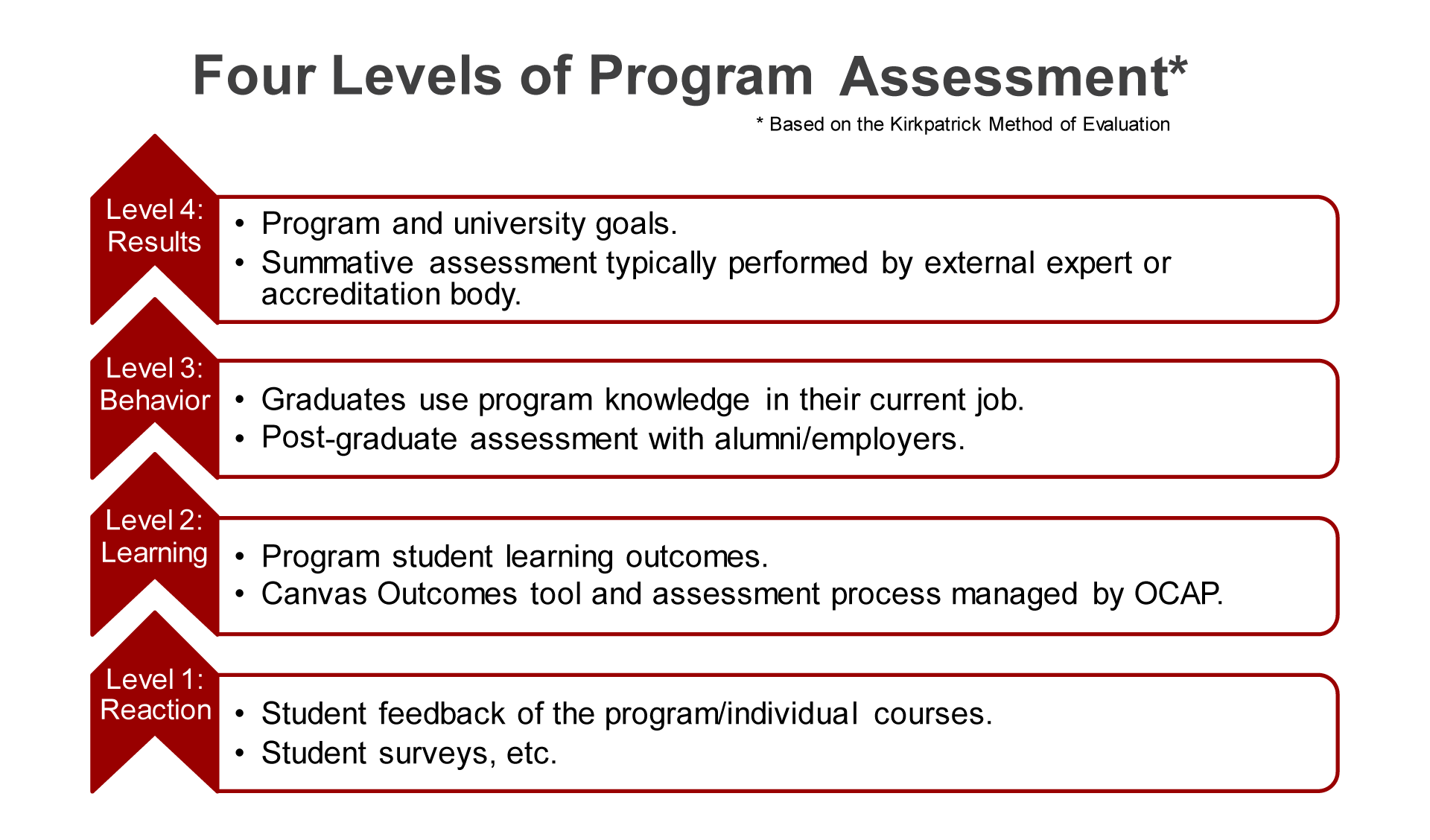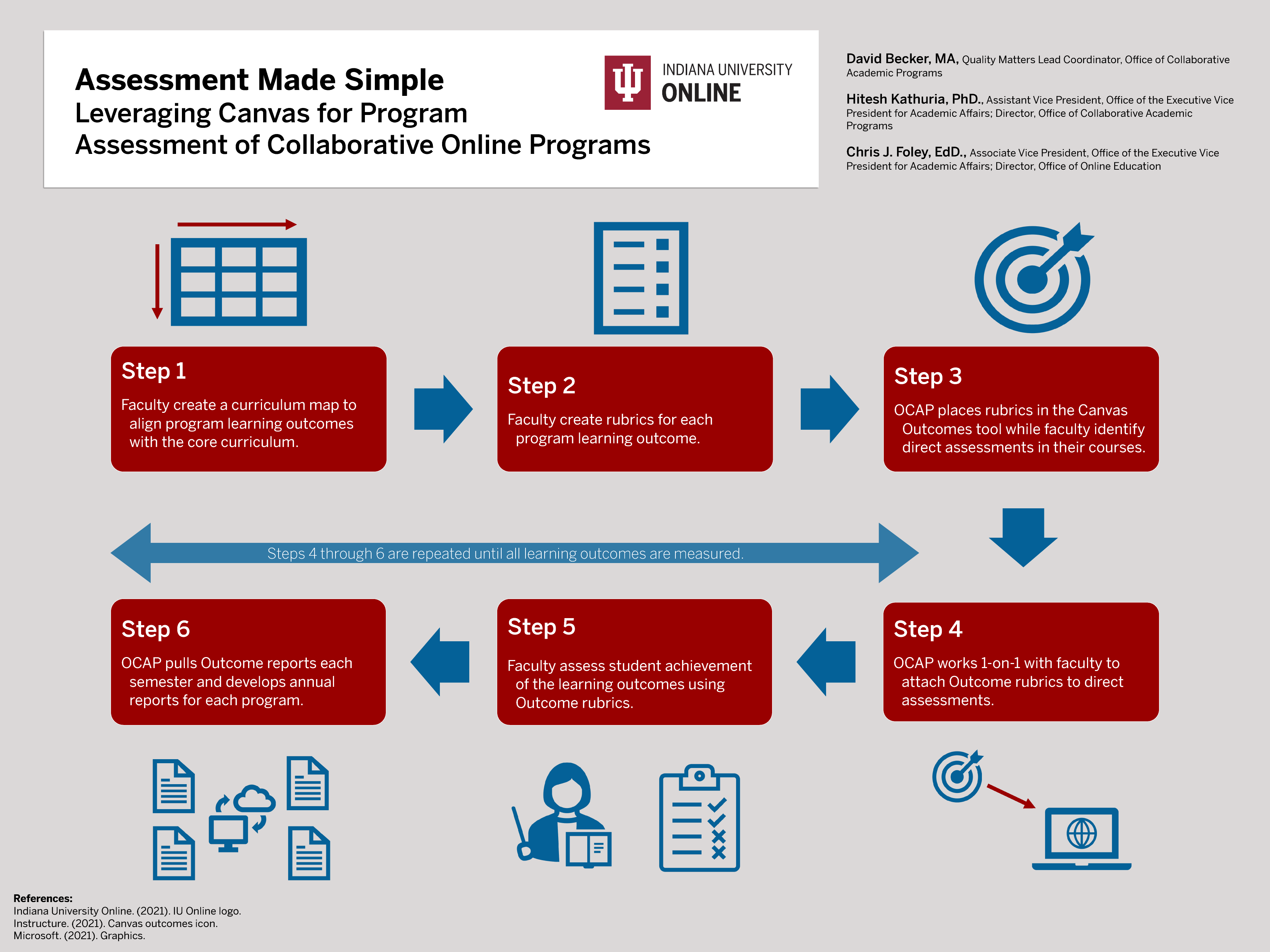What is assessment and why is it important? Assessment is the process for ensuring that students in academic programs are achieving the program's desired learning outcomes—in other words, that they are learning what they are supposed to learn. If students aren't learning what they're supposed to be learning, assessment identifies where improvements can be made.
Assessment is key to maintaining accreditation, so universities regularly share assessment information with their accrediting bodies, along with proof that they have a system for responding constructively to problematic results. In collaboration with campus and course faculty, the Office of Collaborative Academic Programs (OCAP) assesses online academic programs every year and shares its reports with campuses to assist in their work with the Higher Learning Commission (HLC) and other accrediting bodies.
In 2019, OCAP developed an assessment process for IU's collaborative online programs. The office used HLC templates to build an assessment infrastructure that serves multiple programs (regardless of discipline), that is scalable, and that measures outcomes meaningful for all stakeholders. The templates can also be adapted for other programs.
OCAP collects assessment data in fall, spring, and summer. Because courses in collaborative programs are developed and taught by faculty on multiple campuses, data on student performance can be gathered university-wide.
The assessment process
OCAP and faculty work together on the assessment process. First, faculty determine learning outcomes for the core curriculum. They then determine knowledge and skills (rubrics) that lead to the desired learning outcome. OCAP loads the outcomes and rubrics into the courses within Canvas. This linkage allows faculty to conduct assessment as an integral part of managing the course: by grading a student's performance on individual rubrics, they can measure the student's progress toward a given learning outcome. Reports drawn out of Canvas show how well students are performing and where improvements are needed to support student learning.

How data are used
Canvas data are analyzed to identify trends in student performance. Performance that trends downward can signal opportunities to intervene—to improve the sequence of courses or develop scaffolding support to help students improve their learning and thus their performance. Do students lack adequate preparation for some aspect of a program? Pre-program intervention can help. For example, when students in the BS in Informatics program struggled with programming, OCAP, the Office of Online Education, and the Supplemental Instruction program at IU East built a supplemental instruction pilot to help bolster student understanding of programming.
OCAP generates actionable reports and delivers them to faculty committees to review, analyze, and discuss. Faculty and OCAP develop a plan for the following year, then send the reports to academic liaison officers on all campuses. These activities ensure that IU is measuring student learning and performance and developing the means to respond to problems, thereby meeting HLC accreditation requirements.


